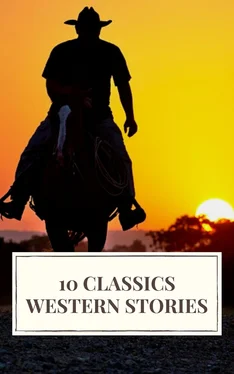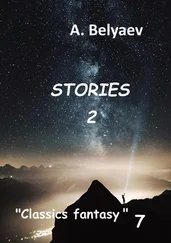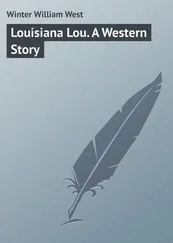“It is but little,” he replied. “Every heart has its burden, and perhaps I have mine. It is the lot of man.”
She looked at him with a vague uneasiness; her susceptible nature responded dimly to the tumultuous emotions that he was trying by force of will to shut up in his own heart.
“Trouble? Oh, do I not know how bitter it is! Tell me, what do your people do when they have trouble? Do they cut off their hair and blacken their faces, as the Indians do, when they lose one they love?”
“No, they would scorn to do anything so degrading. He is counted bravest who makes the least display of grief and yet always cherishes a tender remembrance of the dead.”
“So would I. My mother forbade me to cut off my hair or blacken my face when she died, and so I did not, though some of the Indians thought me bad for not doing so. And your people are not afraid to talk of the dead?”
“Most certainly not. Why should we be? We know that they are in a better world, and their memories are dear to us. It is very sweet sometimes to talk of them.”
“But the Willamettes never talk of their dead, for fear they may hear their names spoken and come back. Why should they dread their coming back? Ah, if my mother only would come back! How I used to long and pray for it!”
Cecil began to talk to her about the love and goodness of God. If he could only see her sheltered in the Divine compassion, he could trust her to slip from him into the unknown darkness of her future. She listened earnestly.
“Your words are good,” she said in her quaint phraseology; “and if trouble comes to me again I shall remember them. But I am very happy now.”
The warmth and thankfulness of her glance sent through him a great thrill of blended joy and pain.
“You forget,” he said, forcing himself to be calm, “that you are soon to leave your home and become the wife of Snoqualmie.”
Wallulah raised her hand as if to ward off a blow, her features quivering with pain. She tried to reply, but for an instant the words faltered on her lips. He saw it, and a fierce delight leaped up in his heart. “She does not love him, it is I whom she cares for,” he thought; and then he thrust the thought down in indignant self-reproach.
“I do not care for Snoqualmie; I once thought I did, but—”
She hesitated, the quick color flushed her face; for the first time she seemed in part, though not altogether, aware of why she had changed.
For an instant Cecil felt as if he must speak; but the consequences rose before him while the words were almost on his lips. If he spoke and won her love, Multnomah would force her into a marriage with Snoqualmie just the same; and if the iron despot were to consent and give her to Cecil, the result would be a bloody war with Snoqualmie.
“I cannot, I must not,” thought Cecil. He rose to his feet; his one impulse was to get away, to fight out the battle with himself. Wallulah grew pale.
“You are going?” she said, rising also. “Something in your face tells me you are not coming back,” and she looked at him with strained, sad, wistful eyes.
He stood hesitating, torn by conflicting emotions, not knowing what to do.
“If you do not come back, I shall die,” she said simply.
As they stood thus, her flute slipped from her relaxed fingers and fell upon the floor. He picked it up and gave it to her, partly through the born instinct of the gentleman, which no familiarity with barbarism can entirely crush out, partly through the tendency in time of intense mental strain to relieve the mind by doing any little thing.
She took it, lifted it to her lips, and, still looking at him, began to play. The melody, strange, untaught, artless as the song of a wood-bird, was infinitely sorrowful and full of longing. Her very life seemed to breathe through the music in fathomless yearning. Cecil understood the plea, and the tears rushed unbidden into his eyes. All his heart went out to her in pitying tenderness and love; and yet he dared not trust himself to speak.
“Promise to come back,” said the music, while her dark eyes met his; “promise to come back. You are my one friend, my light, my all; do not leave me to perish in the dark. I shall die without you, I shall die, I shall die!”
Could any man resist the appeal? Could Cecil, of all men, thrilling through all his sensitive and ardent nature to the music, thrilling still more to a mighty and resistless love?
“I will come back,” he said, and parted from her; he dared not trust himself to say another word. But the parting was not so abrupt as to prevent his seeing the swift breaking-forth of light upon the melancholy face that was becoming so beautiful to him and so dear.
Chapter 6 THE TWILIGHT TALE.
That eve I spoke those words again,
And then she hearkened what I said.
Dante Rossetti.
The next day the Indians had a great hunt. A circle of men on foot and on horseback was drawn around a large tract of forest on the western side of the Willamette River. Gradually, with much shouting, hallooing, and beating of bushes, the circle closed upon the game within it, like the folds of a mighty serpent.
There was a prodigious slaughter, a mad scene of butchery, in which the Indians exulted like fiends. Late in the afternoon they returned to camp, stained with blood and loaded with the spoils of the chase. Snoqualmie distinguished himself by killing a large bear, and its claws, newly severed and bleeding, were added to his already ample necklace of similar trophies.
Cecil remained in the almost deserted camp. He tried in vain to talk with the few chiefs who had not gone out to join in the hunt. Missionary work was utterly impossible that day. Wallulah and the problem of his love filled his thoughts. His mind, aroused and burning, searched and analyzed the question upon every side.
Should he tell Multnomah of Snoqualmie’s cruelty, representing his unfitness to be the husband of the gentle Wallulah?
To the stern war-chief that very cruelty would be an argument in Snoqualmie’s favor. Should he himself become a suitor for her hand? He knew full well that Multnomah would reject him with disdain; or, were he to consent, it would involve the Willamettes in a war with the haughty and vindictive Cayuse. Finally, should he attempt to fly with her to some other land? Impossible. All the tribes of the northwest were held in the iron grip of Multnomah. They could never escape; and even if they could, the good he had done among the Indians, the good he hoped would grow from generation to generation, would be all destroyed if it were told among them that he who claimed to come to them with a message from God had ended by stealing the chief’s daughter. And had he a right to love any one?—had he a right to love at all? God had sent him to do a work among the Indians; was it not wicked for him to so much as look either to the right or to the left till that work was done?
Amid this maze of perplexities, his tense, agonized soul sought in vain for some solution, some conclusion. At times he sat in his lodge and brooded over these things till he seemed wrought up almost to madness, till his form trembled with excitement, and the old pain at his heart grew sharp and deadly.
Then again, trying to shake it off, he went out among the few Indians who were left in the camp and attempted to do missionary work; but enthusiasm was lacking, the glow and tenderness was gone from his words, the grand devotion that had inspired him so long failed him at last. He was no longer a saintly apostle to the Indians; he was only a human lover, torn by stormy human doubts and fears.
Even the Indians felt that some intangible change had come over him, and as they listened their hearts no longer responded to his eloquence; they felt somehow that the life was gone from his words. He saw it too, and it gave him a keen pang.
Читать дальше












